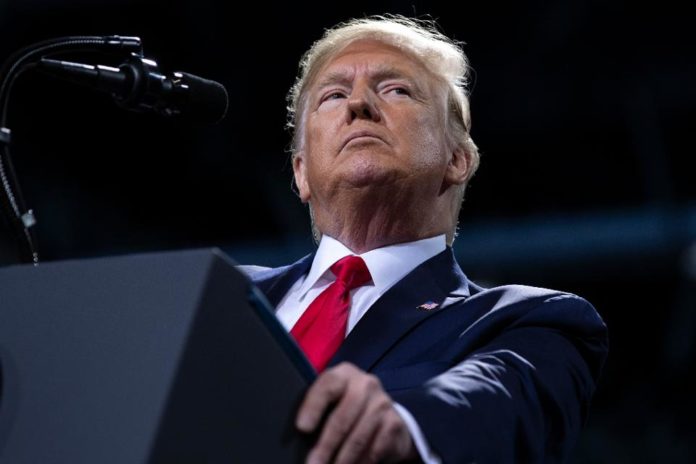The impeachment of Donald Trump, the United States President, earlier this week was a surprise and a no-surprise. In the African light, it may have been an impossible task, making the outcome almost a surprise to followers of international politics from that standpoint. Too many variables would have prevented the impeachment in almost all African countries. South Africa could only get Jacob Zuma to resign after the ANC elected Cyril Ramaphosa as its leader, almost leaving them no choice but to “recall” Jacob Zuma; that’s how far democracy has taken us when it comes to removal of a nation’s leader. Whatever got the leaders of northern African nations removed wasn’t democratic; it was a revolution.
The House had impeached Trump from office after voting for two articles of impeachment – abuse of power and obstruction of Congress. Trump was said to have used the powers of his office to solicit foreign interference on his behalf in the 2020 election. Trump was accused of withholding US security assistance and a White House meeting from Ukraine in a bid to get the Ukrainian President, Volodymyr Zelensky, to publicly announce investigations into his political rival, former Vice President Joe Biden and his son, Hunter. The impeachment couldn’t have surprised keen followers of American politics.
The Democrats haven’t hidden their plot to impeach Trump. It has trailed him almost all his Presidency. Michigan Democrat-Congresswoman Rashida Tlaib was once quoted as saying “we’re gonna impeach the motherfucker”. Followers of international politics know the Democrats will stop at nothing to make history and become only the third House in American history to impeach a serving President. Speaker Nancy Patricia Pelosi made sure of that. She is the first woman-Speaker in U.S. history.
At no time was it reported by any of those against Trump and seeking his removal from office that he intimidated and/or harassed them with any formation of government; no African leader has been that refined. If they don’t personally do it, they will look sideways when it’s been done in their stead. As imperfect as the process with America sounds, it was devoid of personal and physical threats. As quick-mouthed as Trump is, he never deployed the instrumentality of the state at his disposal to as much as threaten any of these congressmen and congresswomen.
Nigeria, as an Africa example. No Nigerian National Assembly has ever really seen the removal of a President through. Rather, a President from the South West removed 3 Senate Presidents (that I can recall at the moment). A sitting governor was once “abducted”. Nigeria is a country where any attempt to bring justice to the rulership is perceived as treason, leaving Nigerians with a leadership without the proper checks and balances; and the constitution and rule of law, sometimes, forlorn.
No attempt has been made to impeach President Muhammadu Buhari but we have “prisoners of conscience” in the dungeon of the Nigerian government. The American system of government we so console ourselves we modelled our democracy after operates an almost entirely different system of government from ours. The “impeachment” is an eye opener for some as to how the American polity works.
In Nigeria, the Senate and the House of Representatives will most likely have a joint sitting as against the US House’s unilateral assembly. After the back and forth between the Nigerian National Assembly (the Senate and the House of Representatives), the Chief Justice of Nigeria and the seven-man panel of “unquestionable Integrity”, the National Assembly is expected to come to a decision. The President will stand impeached immediately after two-third of both chambers of the National Assembly agree to the removal. The Nigerian President is no more leader of government from that point and is an ordinary citizen of the state.
In the United States, the system is less cumbersome and tedious. It’s a three-step procedure. “The Congress investigates the President after which the House of Representatives must pass, by a simple majority of those present and voting, articles of impeachment, which constitute the formal allegation or allegations”. The Senate then tries the President. Impeached by the House, Donald Trump is still the President of the United States until the US Senate, after the trial, finds him guilty as the House.
If the voting by the House is anything to go by, Trump is set to remain President until the end of his constitutionally possible tenure. The House voted heavily along party lines. The House voted 230-197 to charge Trump with abuse of power and 229-198 to charge him with obstruction of Congress. Only two democrats voted against both articles. The Republicans have 53 senators as against the Democrat’s 45. Independent senators make-up for the remaining 2 of the 100 member-Senator. It is safe to believe Republicans will stand by their own; nevertheless, anything is possible.
Nigeria is no where near the United States. And it will be unwise to set the American stage with Nigeria actors. We shouldn’t put ourselves in a situation there might be no coming back from. Happy weekend.
Aroso Akintomide
Twitter: @tomidearoso


